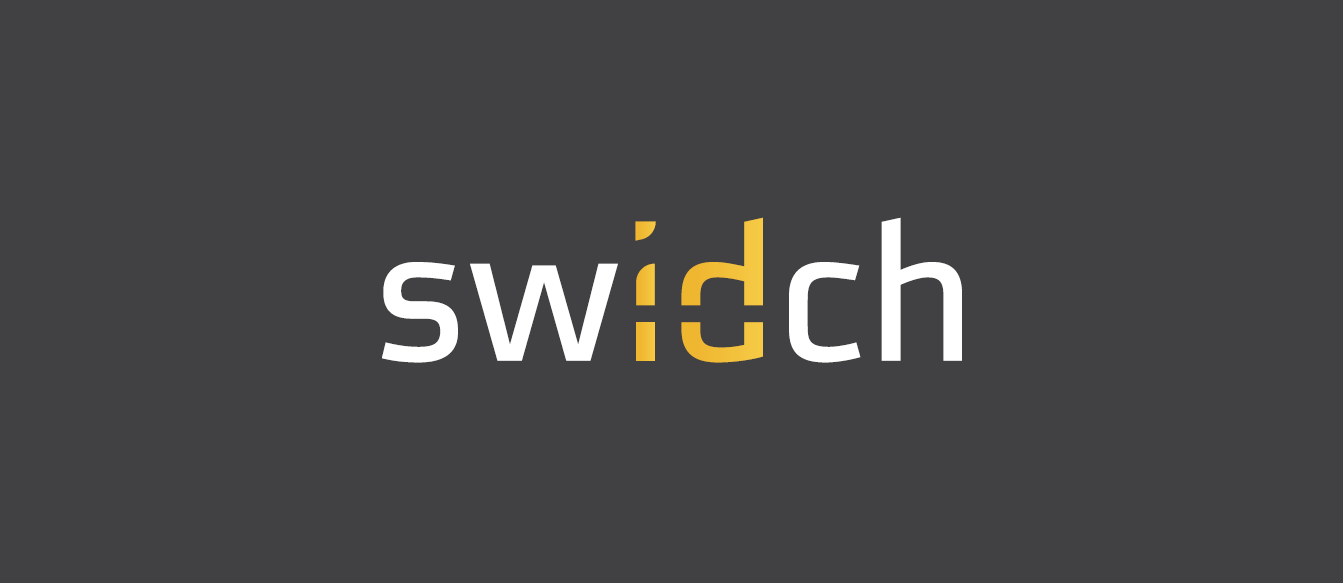Yes, internet security software may be accessed from various devices and platforms. Many internet security software providers provide a wide range of alternatives that are compatible with various operating systems and may be installed on many devices. This enables consumers to have comprehensive protection across all of their devices, regardless of platform. However, before purchasing, ensure that the software is compatible with your specific demands.
List of 20 Best Internet Security Software
VIPRE Security solution for comprehensive protection of your PC, Mac, and smartphone devices. With advanced technology, VIPRE safeguards your private information and personal data from online threats. The innovative VIPRE Endpoint Security Cloud vers...Read More VIPRE Security
Webroot SecureAnywhere solution for advanced computer security. This powerful software offers comprehensive endpoint protection and defends against internet-related issues and malware threats. With its lightning-fast deployment, online configuration,...Read More Webroot SecureAnywhere
Systweak Antivirus is antivirus software that offers constant protection and timely updates to shield your data from malicious attacks. Its advanced virus detection technology is highly efficient in detecting and eliminating harmful viruses and malwa...Read More Systweak Antivirus
ArvanCloud CDN is a content delivery network solution with a widespread presence of 40+ Points of Presence (PoPs) worldwide. Its unique freemium model offers unmatched speed and security for your website, providing a seamless browsing experience for...Read More ArvanCloud CDN
Cerberus - an advanced cybersecurity software designed to safeguard your digital assets. With cutting-edge threat detection and continuous monitoring, it offers comprehensive protection against ever-evolving cyber threats. A perfect solution for busi...Read More Cerberus
IPRoyal - the premier proxy software equipped with a vast network of 8 million ethically-sourced IPs. Continually advancing our product to deliver cutting-edge solutions, we are dedicated to providing 100% ethical source IPs. Empowering businesses to...Read More IPRoyal
the swIDch Auth SDK is a identification and authentication tool for your systems. Say goodbye to passwords and hello to multi-factor security with FIDO-certified biometric authentication, mOTP authentication, and revolutionary OTAC login. Enhance you...Read More swIDch Auth SDK
Intego is MAC antivirus software that provides continuous and effective protection against viruses, malware, and other online threats. With its real-time scanning and automatic updates, Intego keeps your MAC safe from unauthorized access and data bre...Read More Intego
Symantec Endpoint Protection - a solution for enterprises looking to enhance their cyber security measures. This software provides robust two-factor authentication and multi-level threat protection, ensuring unbeatable security for your system. It al...Read More Symantec Endpoint Protection
Akku solution for enterprises using cloud-based applications. Our state-of-the-art cloud management and security software ensures robust data security, privacy, and compliance with industry regulations, while increasing productivity in the cloud. Wit...Read More Akku
LastPass is a password management solution. Our software includes a state-of-the-art password generator, ensuring your accounts are secured with powerful, uncrackable passwords. Trusted by over 47,000 users, LastPass eliminates the hassle of remember...Read More LastPass
Avira, the unparalleled antivirus software, provides complete protection against all types of threats. Its advanced features ensure the security of your data, privacy, and computer from harmful viruses. Being widely trusted and renowned for its outst...Read More Avira
NetFoundry, the solution for rapid creation of application-specific, zero trust, global transport networks. Our user-friendly open-source software enables effortless integration of high performance and security features. Experience the ease and power...Read More NetFoundry
Secure Hive is software designed to simplify complex processes and boost user productivity. It enables users to focus on their main tasks by automating time-consuming procedures. With Secure Hive, inefficiency is a thing of the past, and users can ex...Read More Secure Hive
Dhound is a cybersecurity solution for advanced protection of web and mobile applications. Our certified experts offer in-depth penetration testing services, delivering detailed reports and free retesting to effectively address any vulnerabilities an...Read More Dhound
CA Veracode WAS is a web application security solution that offers advanced scanning features, comprehensive reporting, and seamless integration. It empowers businesses to detect and rectify vulnerabilities, ensure regulatory compliance, and bolster...Read More CA Veracode WAS
CheapSSLWeb, a reputable SSL certificate provider, is headquartered in Texas, USA. We have gained recognition as a reliable website security vendor and offer a diverse selection of SSL certificates, Code Signing Certificates, SMIME, and Document Sign...Read More CheapSSLWeb
ESET Smart Security Nod32 is a security solution designed to protect your digital life. With its advanced features such as Antivirus, Anti-Theft, and Personal Firewall, this software offers complete protection against online threats like viruses, mal...Read More ESET Smart Security Nod32
Comodos robust antivirus software provides top-notch defense against malicious software, viruses, and hidden files. It utilizes cutting-edge cloud technology to quickly scan your device and continuously updates its database with the latest global mal...Read More Comodo
Kaspersky Internet Security is an award-winning antivirus software that offers complete protection for all your devices, such as PCs, Macs, and Android devices. It features a user-friendly interface and lightning fast updates, making it the top choic...Read More Kaspersky
Learn More About Internet Security Software
- What Is Internet Security Software?
- What Are The Recent Trends In Internet Security Software?
- Benefits Of Using Internet Security Software
- Important Factors To Consider While Purchasing Internet Security Software?
- What Are The Key Features To Look For In Internet Security Software?
- Why Do Businesses Need Internet Security Software?
- How Much Time Is Required To Implement Internet Security Software?
- What Is The Level Of Customization Available In Internet Security Software?
- Which Industries Can Benefit The Most From Internet Security Software?
- Conclusion
What Is Internet Security Software?
Internet security software is an essential tool for safeguarding your personal and financial information against cyber attacks. It is a sort of software that protects your computer or mobile device from viruses, malware, spyware, and other internet threats. In today's interconnected world, when both our personal and professional life rely heavily on the internet, having dependable security software is critical.
One of the key objectives of internet security software is to identify and prevent malware from invading your device. It accomplishes this by doing real-time scans of your system and files to detect any signals of unusual behavior. If any risks are found, the software will notify you and take the appropriate steps to eliminate them. Another important feature of internet security software is its capacity to safeguard your sensitive information.
With the rise of data breaches and identity theft, it is becoming increasingly critical to safeguard personal information. Internet security software includes features like encryption and firewalls that add an extra layer of security to your data, making it difficult for hackers to access. Additionally, internet security software protects you as you browse the internet.
It can alert you to potentially unsafe websites and block pop-ups and advertisements that may contain malware. It can also detect phishing attacks, in which scammers seek to gain personal information by impersonating respectable companies. When choosing internet security software, there are a few things to bear in mind. First, ensure that the program is compatible with your device's operating system.
Check to see if the software supports automatic upgrades to guarantee you have the most up-to-date security against new threats. Furthermore, some software adds extra functions like password managers and parental controls, which may be useful for some users.
What Are The Recent Trends In Internet Security Software?
In recent years, the number of cyber threats and attacks has skyrocketed, making internet security software more important than ever. With new trends emerging in the realm of cybercrime, it is critical to keep up with the latest improvements in internet security software.
This buyer's guide will give buyers useful insights into current developments in internet security software, allowing them to make more informed decisions when selecting the best software for their needs.
1. Advanced Threat Prevention: With the rise of sophisticated cyber threats like ransomware and phishing attacks, internet security software now includes advanced threat prevention features. This contains capabilities like as real-time scanning, behavior analysis, and machine learning, which enable the program to detect and prevent even the most sophisticated threats.
2. Cloud-Based Security: Cloud computing has transformed how businesses store and access data. As businesses increasingly shift their data and operations to the cloud, internet security software has evolved to offer cloud-based security. This improves scalability, availability, and centralized management of security measures.
3. Mobile Security: With the increased usage of smartphones and tablets, internet security software now includes mobile security features to secure users' data and devices. This includes features like as secure browsing, anti-theft, and app scanning to protect against mobile dangers.
4. User-Friendly Interfaces: Historically, internet security software was associated with sophisticated and scary interfaces. However, recent developments indicate a shift toward more user-friendly and intuitive interfaces that cater to both technical and non-technical users.
5. Integration With Other Security Products: Another developing trend is the combination of internet security software with other security products like firewalls and antivirus software. This enables a more complete and tiered approach to security, ensuring a strong defense against cyber threats.
6. Privacy Priority: As data privacy concerns have grown, internet security software has shifted its priority to protecting users' personal information. This includes features such as webcam and microphone security, anti-tracking, and safe online transactions.
7. Behavioral Analysis: In addition to classic signature-based detection, internet security software now employs behavioral analysis to detect unknown threats. The software detects and blocks suspicious activity by monitoring application and process behavior.
8. Multi-Platform Compatibility: As the use of various devices becomes more common, internet security software now provides cross-platform compatibility. This implies the software can safeguard users on a variety of operating systems, including Windows, Mac, and mobile devices.
Benefits Of Using Internet Security Software
In today's digital age, the internet is an indispensable tool for communication, business, and enjoyment. However, it also poses significant security dangers, including viruses, malware, identity theft, and online frauds. This is where internet security software comes in - it's an essential tool for safeguarding your personal and financial information from cyber threats.
These are the main benefits of utilizing internet security software and help you make an informed decision about your online safety.
1. Defends Against Cyber Threats: The major purpose of internet security software is to keep your devices safe from numerous online threats. It employs cutting-edge technologies including as firewalls, antivirus, and anti-malware to identify and prevent unwanted activities on your computer, laptop, or mobile device. This protects your private information, such as passwords, credit card numbers, and bank account information, from hackers and cybercriminals.
2. Protects Your Privacy: With the rise of cyber threats, internet users are more concerned about their online privacy. Internet security software includes anti-phishing and anti-spyware protection, which prevent hackers from obtaining your personal information and tracking your online activity. This not only safeguards your privacy, but also removes the possibility of identity theft.
3. Offers Real-Time Protection: The greatest internet security software continuously monitors your devices for suspicious activity or threats. This proactive method ensures that possible threats are identified and eliminated before they may harm your machine or endanger your data.
4. Secures Several Devices: Because most of us possess several devices, such as smartphones, tablets, and laptops, it is critical to have comprehensive security that protects them all. Internet security software provides multi-device protection, allowing you to safeguard all of your devices with a single license, making it a cost-effective solution.
5. Provides More Features: Aside from standard virus protection, several internet security software packages include parental controls, VPN, password manager, and file shredder. These features not only increase your online security, but also your surfing experience and device speed.
Important Factors To Consider While Purchasing Internet Security Software?
When it comes to securing your devices and personal information from online attacks, investing in reputable internet security software is essential. With so many options on the market, it might be difficult to choose the best.
To help you make an informed decision, here are some crucial considerations to consider when selecting internet security software:
1. Security Features: The fundamental goal of internet security software is to defend your devices against viruses, malware, and cyber-attacks. The first item to evaluate is the software's security features. Ensure that it includes vital functions such as real-time antivirus, firewall, anti-spyware, and anti-phishing protection. Advanced features like ransomware protection and vulnerability scanning are also appealing.
2. Compatibility: Before making a purchase, ensure that the software is compatible with your device. Some applications may only be compatible with specific operating systems or devices, so be sure it works on your computer, tablet, or smartphone.
3. User-Friendliness: You don't want to spend hours figuring out how to operate the software. Look for an easy-to-use, customizable UI. The software should also include clear instructions and help in case you run into any problems.
4. Performance: Internet security software should not slow down or crash your PC. Look for performance-tested software with a minimum system effect. It should also include automatic updates to keep you protected from new dangers.
5. Pricing And Subscriptions: Internet security software is often sold as an annual subscription. Before making a purchase, think about the cost and the number of devices covered by the subscription. Some applications may provide savings for numerous devices or longer subscriptions, so compare prices and select the best solution for your budget.
6. Customer Support: If you have any problems with the software, dependable customer service can make a big impact. Look for software that provides various lines of help, such as live chat, email, and phone support. It is also advisable to study reviews and investigate the software's customer service record.
7. Additional Features: In addition to key security features, some software may include parental controls, password managers, and file encryption. Before you make a purchase, consider whether these additional features are required for your personal needs.
8. Reputation And Review: Researching the software's reputation and reading user evaluations can provide helpful insights. Look for independent reviews from reputable sources and study user comments to gain a better knowledge of the software's functionality and user experience.
What Are The Key Features To Look For In Internet Security Software?
When it comes to safeguarding your online activity and sensitive data, having dependable internet security software is critical. With an ever-increasing number of cyber dangers, it is critical to select software that provides comprehensive security. But, with so many options on the market, how can you know which one to choose?
Here are the important things to look for in internet security software so you can make an informed purchase decision.
1. Antivirus And Malware Protection: The fundamental role of any internet security software is to safeguard your device from viruses, malware, and other dangerous applications. Make sure the program you purchase has a powerful antivirus engine capable of detecting and eliminating a wide range of threats.
2. Firewall Protection: A firewall serves as a barrier between your device and the internet, preventing unwanted access and potential dangers. Look for internet security software that includes a built-in firewall or interfaces with your device's existing firewall to provide further protection.
3. Real-Time Scanning: Select software that provides real-time scanning, which means it constantly analyzes incoming data and finds and removes threats in real time. This function is vital since it prevents viruses from infecting your device and ensures that your online activities are always safe.
4. Internet Protection Capabilities: In addition to antivirus and firewall protection, search for internet security software that has other capabilities to protect your online activity. These may include phishing scam prevention, anti-spam email filters, and anti-tracking measures to safeguard your online privacy.
5. Compatibility: Before purchasing internet security software, be sure it is compatible with your device's operating system. Some software is created exclusively for Windows or Mac, while others are cross-platform. Choosing appropriate software ensures a seamless installation and optimal performance.
6. User-Friendly Interface: A decent internet security software should have a basic and easy-to-use interface so that it is accessible to all users. It should also include customization options so that you may adjust the protection to your unique requirements and preferences.
7. Regular Updates: Because new threats develop on a daily basis, it is critical to select software that delivers regular updates in order to stay current with the latest security measures. To ensure optimal safety, use software that provides automatic updates.
Why Do Businesses Need Internet Security Software?
In today's digital age, most businesses rely extensively on the internet to conduct their daily operations. From communication to data storage, practically every facet of a company's activities makes use of online platforms. While this has improved business efficiency, it has also increased their vulnerability to cyber assaults. The Ponemon Institute's 2020 poll found that the average cost of a data breach for enterprises was $3.86 million.
This is a staggering figure that can have a big influence on a company's financial stability and reputation. Investing in internet security software is one of the most effective ways for a business to protect itself against such dangers. Internet security software is a collection of technologies designed to safeguard enterprises from a variety of cyber dangers, such as malware, phishing attacks, data breaches, and so on.
These software solutions frequently include features such as antivirus protection, firewalls, ransomware protection, and anti-spam filters, among others, to protect a company's online activity. Furthermore, internet security software provides real-time monitoring and threat detection, allowing businesses to identify and mitigate possible threats in advance.
This helps to prevent security problems, sparing firms from long-term costs. Furthermore, with the development of remote work and bring-your-own-device regulations, businesses have an even stronger motive to invest in internet security software. These technologies help safeguard a company's data even when employees use personal devices or work from outside the office.
How Much Time Is Required To Implement Internet Security Software?
The time required to implement internet security software varies depending on several factors. The complexity of the program, the size of your network, and the features you enable will all influence the schedule of deployment. On average, full installation and optimization can take between a few hours and several days. First and first, assess the level of intricacy of the internet security program you've chosen.
Some programs are simple to install, while others require more technical knowledge and troubleshooting. This phase estimates how long it will take to complete the installation process. Second, the size of your network will significantly impact the implementation time. Larger networks will require more time to set up and configure each device with the security software.
When calculating the time required, take into account the number of devices and the level of protection required for each. Finally, the features you enable will affect the implementation time. Some internet security solutions include a lot of adjustable features, which may take extra effort to set up effectively. It is critical to carefully examine which functionalities are required for your network and prioritize their setting.
Implementing internet security software might take anywhere from a few hours to several days, depending on the complexity, size, and features of your network. To ensure a seamless and successful deployment, installation must be carefully planned and given adequate time. Furthermore, some software providers give installation services and support, which can help speed up the process and guarantee that the product is configured appropriately.
What Is The Level Of Customization Available In Internet Security Software?
Internet security software provides an important layer of security for our online actions and data. As technology evolves, cyber threats become increasingly complex, necessitating a powerful and adaptable protection solution. With so many alternatives on the market, including antivirus, anti-malware, firewalls, and more, it's critical to grasp the level of flexibility provided by these products. The level of customisation possible in internet security software varies by product. However, most credible and innovative software solutions provide a high level of customisation to meet the unique demands and preferences of customers.
Customization is often offered in the following areas:
1. Scanning Options: One of the most important characteristics of internet security software is its capacity to scan for threats and vulnerabilities in real time. Different software may provide a variety of scanning choices, including complete system scan, fast scan, and custom scan. Custom scan enables users to scan individual files, folders, and drives, making the process more efficient and personalized to their needs.
2. Threat Detection And Prevention: You may also customize how security software detects and responds to attacks. Users can frequently set or disable certain security measures, such as online protection, email security, and others, depending on their preferred level of security. Users can also specify the severity level of threat warnings and the actions the software performs when a danger is detected.
3. Customizing: Internet security software provides a variety of customizing options, allowing users to tailor the software's interface and settings. This contains features such as selecting a preferred language, creating a personalized dashboard, and adjusting the display of security notifications. These customizing choices make the software more user-friendly and tailored to individual interests.
4. Parental Controls: For families with children, parental controls are essential features of internet security software. These features allow parents to monitor and regulate their children's online activity, resulting in a safe and secure internet experience. Most security software provides extensive flexibility in parental control settings, allowing parents to impose customized limitations based on their children's ages and interests.
5. Third-Party Integrations: Another customization option is the integration of third-party applications with internet security software. Users can often combine their security software with other tools, such as browsers and email clients, to improve their protection and tailor it to their unique requirements.
Which Industries Can Benefit The Most From Internet Security Software?
Internet security software is an essential tool for organizations and people to secure their precious digital assets from cyber threats. With a growth in cyber attacks and data breaches, organizations across industries must invest in trustworthy and effective internet security software. But which sectors will profit most from this software?
1. Finance And Banking Sector: The finance and banking sectors deal with a lot of sensitive financial data and transactions on a regular basis. This makes them an ideal target for hackers and fraudsters. Internet security software, with its strong encryption and authentication capabilities, can protect these institutions' financial information and prevent unwanted access.
2. Healthcare Business: The digitization of medical records and the rise of telemedicine have made the healthcare business increasingly vulnerable to cyber threats. Internet security software can safeguard patient data by maintaining the confidentiality, integrity, and availability of sensitive medical information.
3. E-commerce Businesses: As online shopping becomes more popular, e-commerce businesses have the difficulty of protecting their consumers' personal and financial data. Internet security software helps protect online transactions and keep sensitive information from falling into the wrong hands.
4. Government Agencies: Government agencies handle a large amount of sensitive data, which ranges from classified information to citizens' personal information. This makes them a desirable target for cybercriminals. Internet security software can provide multilayered protection against cyber attacks while also assisting government bodies in maintaining the confidentiality and integrity of data.
5. Education Sector: The education sector has become increasingly reliant on digital platforms, with online learning and virtual classrooms becoming the norm. Internet security software can safeguard educational institutions from cyber threats, assuring the safety of student and teacher data and the proper operation of online learning platforms.
6. Small And Medium-Sized Business (SMB): Regardless of size, SMBs are vulnerable to cyber threats. In fact, they are more vulnerable because to low resources and the absence of professional IT teams. Internet security software can provide cost-effective protection for these firms by protecting their data and networks from cyber threats.
Conclusion
Finally, when it comes to protecting your digital devices and sensitive data, investing in internet security software is essential. With the continual threat of cyber assaults and data breaches, a dependable and comprehensive security solution is critical for both individuals and enterprises. In our buyer's guide, we looked at the essential features and variables to consider when choosing the best internet security software for your needs.We've also chosen high-performing choices that strike a balance between protection, usefulness, and price.
It is vital to realize that no security program is perfect, and practicing safe online practices will help you secure your digital assets even more. This includes creating secure and unique passwords, avoiding strange websites and communications, and updating your software and operating system. Investing in high-quality internet security software can not only provide you peace of mind, but will also protect you from financial and personal damage. We hope this guidance has helped you make an informed decision and be safe while exploring the digital world.
Internet Security Software FAQ's
Can Internet Security Software Be Accessed Across Multiple Devices And Platforms?
Is Internet Security Software Future-Proof And Adaptable To Emerging Technologies Like AI, Blockchain Or IoT?
Internet security software is continually improving to keep up with emerging technologies like artificial intelligence, blockchain, and the Internet of Things. As these technologies evolve and gain popularity, internet security software vendors are constantly updating and refining their solutions to guarantee they are successful at protecting against new threats.
With modern capabilities like machine learning and blockchain encryption, internet security software is well-equipped to protect your devices and data in today's ever-changing digital environment.
Is There A Free Trial Offered To Assess Internet Security Software Before Committing?
Yes, most internet security software vendors provide a free trial period in which users can try their product before making a commitment. This allows consumers to get a feel for the software's features and protection before deciding whether it suits their requirements.
Typically, these trials run 30 days, allowing customers to explore the software's features and assess whether it is worth the investment. It is always suggested to take advantage of trial programs to confirm that the software fulfills your needs before purchasing.
Does Internet Security Software Offer Data Security Features And Meet Regulatory Compliance Standards?
Yes, most internet security software includes data protection features like encryption, firewalls, and anti-phishing technologies to safeguard sensitive information. It also assists enterprises in meeting regulatory requirements such as GDPR, HIPAA, and PCI DSS by assuring safe data storage and transmission. Additionally, it delivers frequent security updates to keep up with changing legislation and threats. This enables firms to avoid fines and penalties while keeping client trust.
Can Internet Security Software Integrate Seamlessly With Existing Tools And Platforms?
Yes, most internet security software is intended to work easily with existing tools and platforms. This provides customers with a smooth and hassle-free experience, as they may continue to utilize their preferred platforms without interruption.
Furthermore, many internet security software is compatible with multiple operating systems and devices, allowing consumers to protect all of their gadgets with a single solution. Before acquiring security software, be sure that it is compatible with your existing tools and platforms.






















